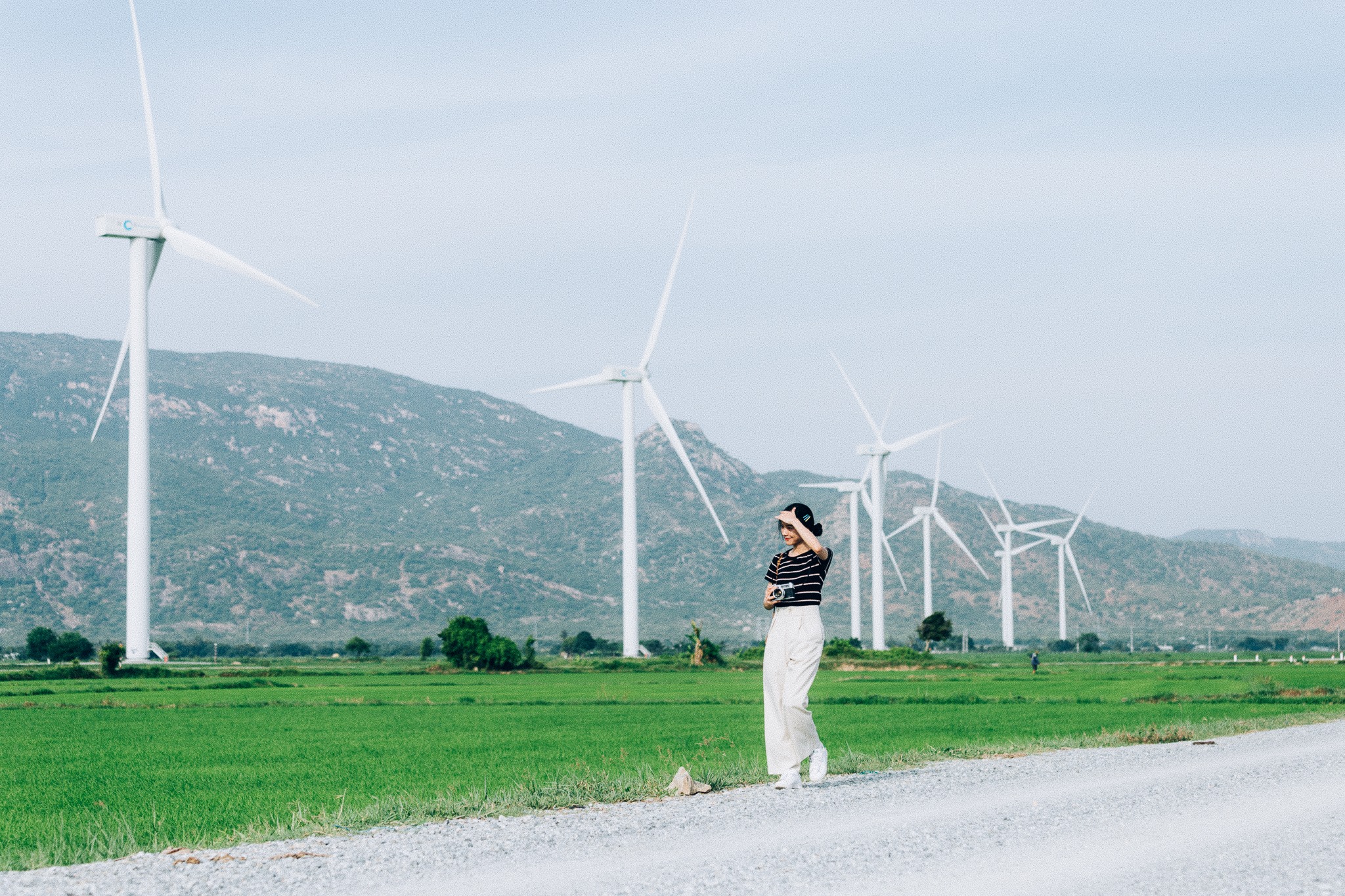Solutions to make Vietnam a more sustainable economy
To stimulate private investment, and make Vietnam a stronger, more sustainable economy, Mr. Alain Cany, Chairman of EuroCham, Country Chairman of Jardine Matheson Vietnam has a few recommendations for how the private sector and public sector can come together.

Wind power in Ninh Thuan province.
>> Market Outlook: Vietnam today, tomorrow and beyond
Among 190 economies, Vietnam ranked 70 in the World Bank's 2020 Doing Business report. The difficulty of starting a business, registering property, and paying taxes were all major issues cited.
“In a competitive global market, Vietnam needs to make business simpler in order to increase investment, knowledge sharing, and tech transfers. For this, it is an absolute necessity that Vietnam’s legal framework, administrative procedures, and business incentives are given high priority”, said Mr. Alain Cany.
Next, in Mr. Alain Cany’s view, public and private investors need to accelerate the green transition.
With more than three thousand kilometers of coastline, Vietnam is highly vulnerable to climate change. Floods and saltwater intrusion caused by rising sea levels are destroying homes and livelihoods. Predictions for the future are also grim. In the event of a 100 cm rise in sea level, half of the Mekong Delta will be underwater. This would have unimaginable economic and human costs.
In response, Vietnam has become an ambitious player in sustainability. COP26 in 2021 marked a milestone for Vietnam when Prime Minister Pham Minh Chinh committed to reaching net zero by 2050. The Prime Minister's determination was evident when I was there in Glasgow with him. Following COP26, ambitious targets for 2030 were set, including reducing GDP's energy intensity, boosting renewable capacity, increasing the digital economy and extending forest cover. A comprehensive legislative package, such as Vietnam's 2021-2030 National Green Growth Strategy, provided further momentum.
No matter what, realizing a transformative change and developing renewable energy requires substantial upfront investments. The Vietnamese government requires assistance for this shift, and a critical role will be played by FDI in providing technology, expertise and capital.
Mr. Alain Cany encourages everyone here to do their part to contribute to the government's climate agenda through funds, implementing circular economy initiatives, improving energy efficiency, and adopting clean energy. By taking the lead, we will help drive change throughout Vietnam's economy.
“Despite EuroCham members' willingness to help fill Vietnam's green funding gaps, its potential is hindered by regulatory gaps, bureaucracy, and inadequate grid infrastructure”, said Mr. Alain Cany.
This holds true for all of Vietnam's critical infrastructure, whether it be energy infrastructure or transport infrastructure. A key area for Vietnam to improve to attract more FDI is infrastructure development, according to EuroCham's latest Business Climate Index. In terms of infrastructure funding, the government expects public money to cover two-thirds of the needs, with private investment covering the remainder.
>> Vietnam's prospects are reassuring
FDI is ready and able to help. Yet, since the government’s Law on Public-Private Partnership took effect in early 2021, the number of PPP projects has actually been declining. In 2021 and 2022, almost no private money was invested in public infrastructure. This is because currently, the government's legal framework is too simplistic, does not clearly define investor rights, and is inadequate for regulating many of the main issues associated with PPPs. It is my hope that the government will further streamline administrative procedures and develop a comprehensive legal framework so that FDI companies can make a greater contribution.
Vietnam also has ambitious goals for its digital economy. 2030 targets a 30% contribution of the digital economy to GDP. Mr. Alain Cany urges private sector leaders to take advantage of the current favorable conditions and maintain Vietnam's digitalization by increasing funding to digital development and integrating it throughout your business model. From the government side, the government must encourage innovation, digitize procedures, and align regulations with international standards.
“To develop Vietnam in all of these key areas - green transformation, improved infrastructure, digital development, moving up the global value chain in export-oriented manufacturing, and so on - the public and private sectors must come together to boost Vietnam's human resource capacity. This is absolutely critical”, said Mr. Alain Cany.
According to the Ministry of Labor, Invalids and Social Affairs, only 26.1% of Vietnam's labor force is defined as “skilled.” Government officials want to boost this to 75% by 2030, with 40% receiving formal certifications. This would help future-proof Vietnam's workers and builder a stronger foundation for future high-quality growth.
In Mr. Alain Cany’s view, towards this end, the government must focus on upskilling its workers to enhance their skills and abilities. The private sector has a huge role to play as well. By sharing knowledge and implementing talent development initiatives, we should develop Vietnam's workforce to the fullest possible extent.
For this and all other partnership initiatives, Mr. Alain Cany recommends that private sector actors target SMEs, as 96% of new businesses in the country are SMEs.








